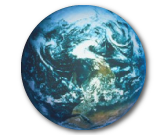Each year, Earth Day — April 22 — marks the anniversary of what many consider the birth of the modern environmental movement in 1970.
The idea came from Earth Day founder Gaylord Nelson, then a U.S. Senator from Wisconsin. Inspired by the ravages of the 1969 massive oil spill in Santa Barbara and the student anti-war movement, he realized the potential to put environmental protection onto the national political agenda. Senator Nelson announced the idea for a “national teach-in on the environment” to the national media. He persuaded Pete McCloskey, a Republican Congressman, to serve as his co-chair.
Earth Day 1970 achieved a rare political alignment, enlisting support from Republicans and Democrats. The first Earth Day led to the creation of the United States Environmental Protection Agency and the passage of the Clean Air, Clean Water, and Endangered Species Acts. "It was a gamble," Gaylord recalled, "but it worked."
As 1990 approached, Earth Day went global, mobilizing 200 million people in 141 countries and lifting environmental issues onto the world stage. Earth Day 1990 gave a huge boost to recycling efforts worldwide and helped pave the way for the 1992 United Nations Earth Summit in Rio de Janeiro. It also prompted President Bill Clinton to award Senator Nelson the Presidential Medal of Freedom for his role as Earth Day founder.
Earth Day 2010 brought 225,000 people to the National Mall for a Climate Rally, and, among other things, launched an international, 1-million tree planting initiative with Avatar director James Cameron.
The fight for a clean environment continues in a climate of increasing urgency, as the ravages of climate change become more manifest every day. ERA science fully supports Earth Day and honors the great activists who have shined a spotlight on the environment. We invite you to visit the Earth Day Network at www.earthday.org, to see what they have planned for Earth Day 2013.

